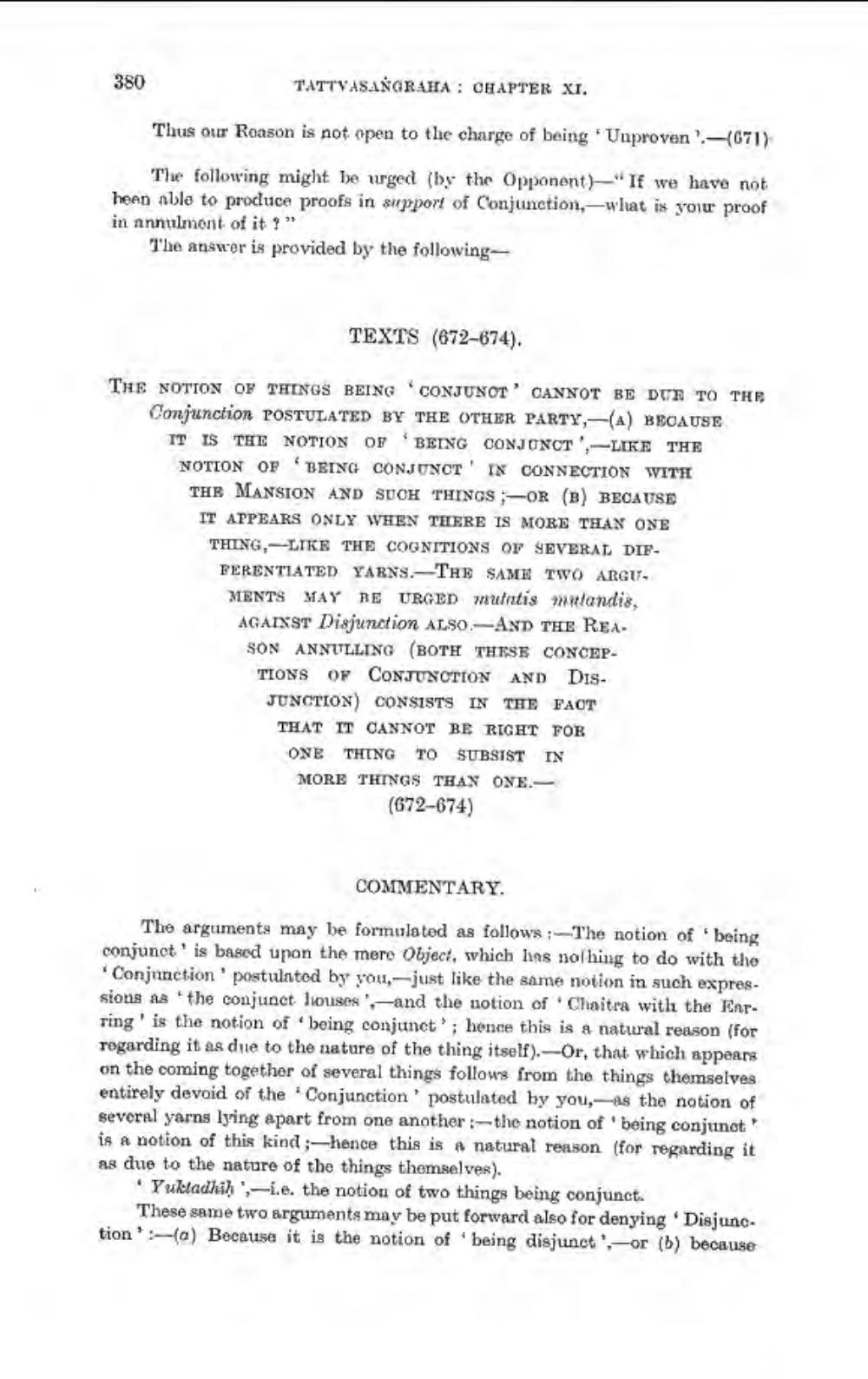________________
380
TATTVASANGRAHA : CHAPTER XI.
Thus Our Roason is not open to the charge of being Unproven':-(071)
The following might be urged (by the Opponent)- "If we have not heen able to produce proofs in support of Conjunction, -what is your proof in annulmont of it?"
The answer is provided by the following
TEXTS (672-674).
THE NOTION OF THINGS BEING CONJUNOT' CANNOT BE DER TO THE
Conjunction POSTULATED BY THE OTHER PARTY,-(A) BECAUSE IT IS THE NOTION OF BEING CONJONCT, -LIKE THE NOTION OF BEING CONJUNCT' IX CONNECTION WITH THE MANSION AND SUCH THINGS; -OR (B) BECAUSE IT APPEARS ONLY WHEN THERE IS MORE THAN ONE THING, LIKE THE COGNITIONS OF SEVERAL DIFFERENTIATED YARNS.-THE SAME TWO ARGUMENTS MAY BE URGED mutatis mutandis, AGAINST Disjunction ALSO- AND THE REA. SON ANNULLING (BOTH THESE CONCEPTIONS OF CONJUNCTION AND DisJUNCTION) CONSISTS IN THE FAOT THAT IT CANNOT BE RIGHT FOR ONE THING TO SUBSIST IN MORE THINGS THAN ONE
(672-674)
COMMENTARY.
The arguments may be formulated as follows:-The notion of being conjunct' is based upon the mere Object, which has nothing to do with the
Conjunction postulated by you, just like the same notion in such expressions as the conjunct louses', -and the notion of Chaitra with the Enrring' is the notion of being conjunct'; hence this is a natural reason (for regarding it as due to the nature of the thing itself). Or, that which appears on the coming together of several things follows from the things themselves entirely devoid of the Conjunction' postulated by you, -as the notion of several yarns lying apart from one another the notion of being conjunct is a notion of this kind ;-hence this is a natural reason (for regarding it as due to the nature of the things themselves).
Yuktadhi)':-.e. the notion of two things being conjunct.
These same two arguments may be put forward also for denying Disjunc. tion :-(a) Because it is the notion of being disjunct', -or (b) because




